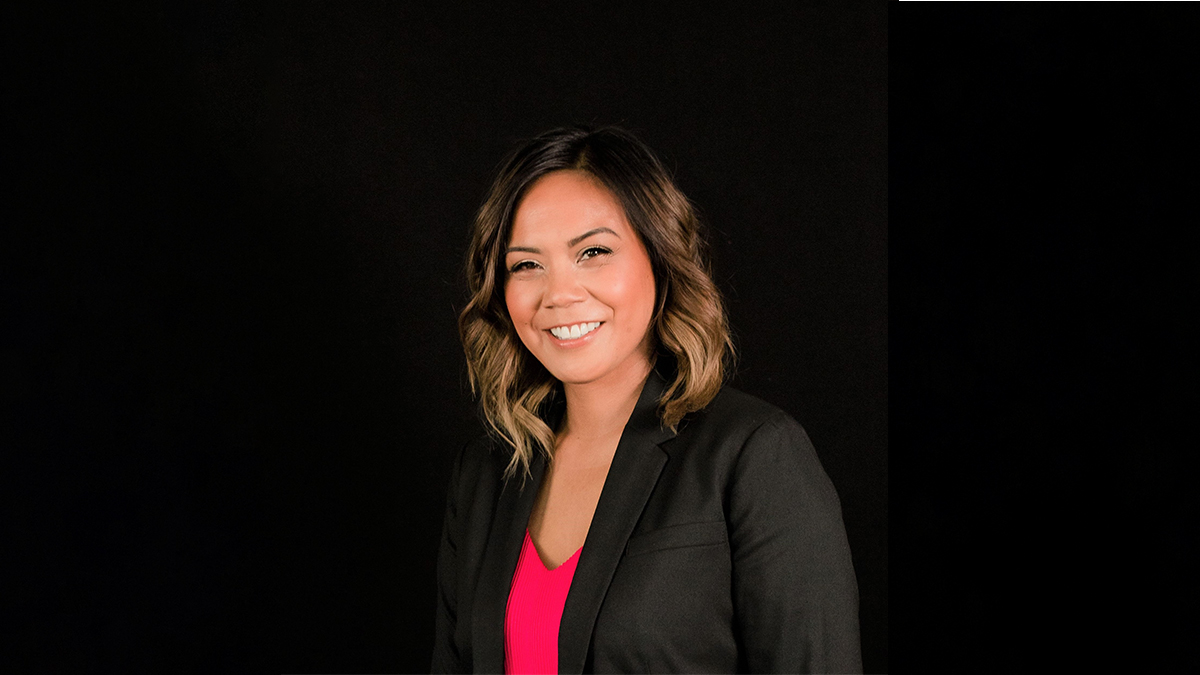Katherine Salucop (’20 EMBA)
BAA Communications Committee Volunteer - 13 May 2022
Katherine Salucop (’20 EMBA) says her time at the Alberta School of Business was one of personal and professional growth that allowed her to level-up in her career in organizational effectiveness after graduation. In this month’s alumni profile, Katherine reflects on her time in the Executive MBA program and offers some advice for new grads as well as managers seeking to enhance their employees’ experience.

BAA: How was student life for you?
Returning to university for my MBA as an adult learner was a completely new experience — I was really intentional about enjoying the full student experience. Being on campus, making meaningful connections with classmates, and participating in activities and extracurricular events really made the MBA experience a complete one.
BAA: Can you share how your career has developed post-graduation through to today?
My learnings from the MBA program have helped me grow personally and professionally, not just post-graduation but also while I was taking courses. I was able to apply many of my learnings from my classes, whether it was finance, strategy, leadership, or marketing, for example, in real-time at work. The learnings from the MBA have helped shape who I am as a business leader and helped round out my toolkit of knowledge and skills to handle unique opportunities and challenges at work. I have taken on an expanded leadership role leading a broader portfolio of teams since graduating from the EMBA program.
BAA: What drove your decision to pursue the Executive MBA program? What were your favourite parts of the program?
The Executive MBA program provided a great pathway for me to complete my MBA in a two-year window while continuing to work full-time. The coursework and time dedicated to studying were very intense but rewarding! Every monthly in-class session was full of new learnings that I could apply at work. What I appreciated the most about the program was learning with a cohort of classmates — it was a real privilege to go through the EMBA experience with a diverse group of professionals with varied backgrounds who you could learn from and lean on!
BAA: Can you tell us about your current role and the kind of work you are doing?
I am the Vice President, Organizational Development for Alberta Innovates, a government agency that supports research and innovation in the province. I lead a portfolio of teams that enhance employee life and organizational effectiveness so the organization can fulfill its mandate. My portfolio of teams includes the Human Resources, Facilities, Health and Safety, and Materials Management functions.
BAA: What advice do you have for new graduates just starting out in their careers?
Two pieces of advice:
- Be open to exploring options. Have career goals, but don’t be limited or hindered by them. Your career path and progression are never linear and there is no single pathway to success. Be open to every opportunity that presents itself to you, even if it seems unexpected or out of your comfort zone.
- Relationships matter. Throughout your career, you will connect with people that will have an impact on you and that you will have an impact on. Relationships take many forms from colleagues, friends, mentors, mentees, allies, etc. Be authentic and intentional about how you build and foster relationships.
BAA: Your role involves employee wellbeing and engagement - what tips do you have for managers interested in undertaking new initiatives in these areas?
Reflecting on the last two years, the world of work has changed and continues to change. The lines have blurred between work life and personal life — this means that employers and leaders need to think about aspects of employee life that weren’t necessarily a focus in the past. Creating an engaging and high-performing employee experience requires leaders to think about the person as a whole and consider how they can bring their full and best selves to work. This means listening, involving, and co-designing organizational practices with employees — this means taking an employee-centric approach. Leaders need to play a role in promoting an inclusive work environment, championing employee physical and mental health and wellness, and fostering continuous learning, development, and growth.
Related Links
Subscribe to UAlberta Business
Become part of our community. Get the latest news and event information from the Alberta School of Business in your inbox every month.